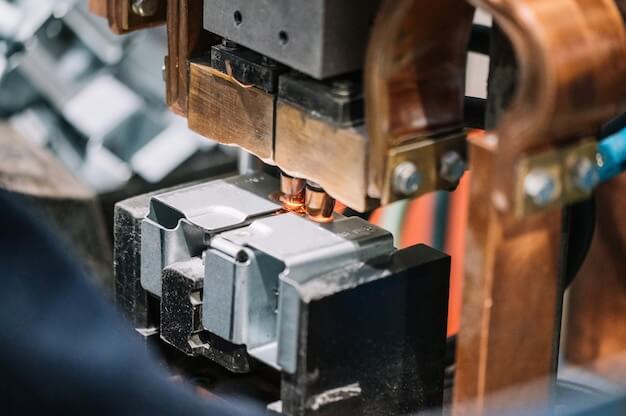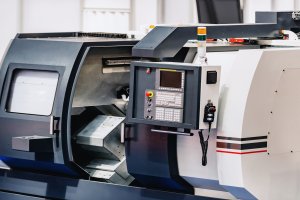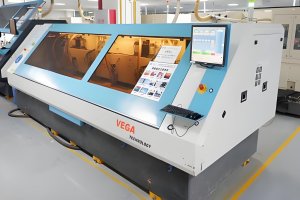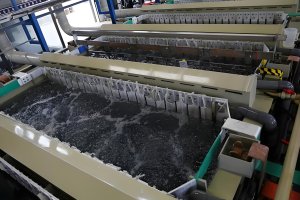Introduction to CNC Machining, Zirconium and Nickel Alloys
Computer Numerical Control (CNC) machining is a sophisticated method used in modern manufacturing that involves the use of computers to control machine tools. The precision and reproducibility of this technique significantly enhance the efficiency and quality of production. A key aspect of successful CNC machining resides in choosing the right material which can withstand the demanding processing conditions. In light of this, zirconium and nickel alloys have emerged as popular choices due to their commendable corrosion resistance properties. Both materials offer distinct advantages and understanding their unique characteristics can enable manufacturers to make an informed decision based on the specific usage requirement.
Understanding Corrosion Resistance in Manufacturing Materials
The concept of corrosion resistance is paramount in the field of manufacturing materials, particularly with respect to machinery parts. In essence, corrosion resistance refers to a material’s ability to withstand degradation brought on by its environment, often manifested through rust or similar types of oxidization. This phenomenon occurs when a chemically reactive material, such as metal, interacts with its surroundings leading to an inevitable change in its properties – most noticeably, disintegration and loss of strength.
This trait holds critical importance because it dictates the lifespan and efficiency of machinery parts. Components without sufficient corrosion resistance will undoubtedly wear down more rapidly, resulting in frequent replacements, added costs, decreased productivity due to increased downtime, and potentially creating hazardous conditions. To illustrate, consider the impact on an aircraft engine part which experienced accelerated erosion; Its reliability would drastically diminish, posing serious operational risks and financial consequences for the airline.<\p>
- Corrosion Resistance: This property indicates how well a material can resist deterioration or damage caused by oxidation or other chemical reactions with the environment.
- Significance: Higher corrosion resistance enhances the life-span and effectiveness of machinery parts, reducing replacement frequency and fostering smoother operations overall.
Zirconium as a Manufacturing Material
Zirconium, an abundant element found in the earth’s crust, possesses unique attributes that make it attractive for manufacturing. One standout feature of zirconium is its exceptional resistance to corrosion. This characteristic comes from a thin surface layer of oxide which forms when zirconium reacts with air or water. As such, this metal becomes virtually immune to common corroding agents like saltwater and acids.
- Corrosion Resistance: Zirconium’s ability to form a protective oxide layer is fundamental in hostile environments where extreme conditions can cause other materials to deteriorate quickly.
- Potential Uses: Because of these features, zirconium is used in various fields including chemical processing, medical devices, aerospace applications, automotive parts, and nuclear reactors due to its low absorption cross-section for thermal neutrons.
Overview of Nickel Alloys as a Manufacturing Material
Nickel alloys are widely used in manufacturing due to their excellent corrosion resistance, high-temperature strength, and exceptional mechanical properties. These alloys are suitable for a wide range of applications, including aerospace, chemical processing, and marine industries. Understanding the specific properties and applications of nickel alloys is crucial for selecting the right material for manufacturing. For professional CNC machining services, consider online CNC service.
Comparing Zirconium vs Nickel Alloys in Corrosion Resistance
In a showdown of corrosion resistance between zirconium and nickel alloys, each material exhibits distinctive capabilities against different corrosive conditions. To start with, zirconium is renowned for its exceptional resistance to a wide range of acids, salts, alkalis, and organic compounds. Its strong oxide film contributes significantly to preventing the metal from corroding, making it highly resilient even under extreme conditions.
On the other hand, nickel alloys demonstrate superior performance when exposed to high-temperature oxidation or sulfidation environments, typically found in oil and gas processing industries. The addition of components such as chromium enhances their overall corrosion resistance capability by forming a protective oxide layer on the surface.
- Zirconium: Exceptional resistance to diverse corrosive substances. Perfect for use in situations involving exposure to a multitude of harsh chemicals.
- Nickel alloys: Superior high-temperature oxidation and sulfidation resistance. Highly suited to applications within the heat-treatment industry and areas experiencing severe thermal cycling.
Anazing example of one outperforming the other can be seen in chemical processing units that deal with concentrated sulfuric acid solutions. Here, zirconium clearly outperforms nickel alloys due to its ability to resist attack from concentrated acids at elevated temperatures.
Practical Considerations in Choosing Between Zirconium and Nickel Alloys
In the decision-making process for selecting either zirconium or nickel alloys, corrosion resistance is a vital factor but not the only one. Further practical considerations are cost, availability, and machinability of both materials. Undoubtedly, the budget will influence choice: although zirconium provides superior corrosion resistance, it’s more expensive due to its shorter supply chain and demand/supply dynamics. On the other hand, nickel alloys tend to be more accessible and cost-effective on the market, making them an attractive option for projects with tighter financing.
- Machinability also weighs into the balance. As zirconium demands specialized techniques for successful CNC machining that could escalate manufacturing costs, Nickel alloys, conversely, can provide easier machineability without compromising significant corrosion resistance.
- The design of your product might dictate your material selection as well. For instance, if you require intricate detailing on parts, Nickel alloys’ ductility offers advantage over the somewhat brittle Zirconium.
Therefore, while pure technical specifications play a crucial role, it’s equally important to evaluate how these specifications align with your project’s practical stipulations such as budgetary constraints, overall project timeline, and specific design needs.
Conclusion: Zirconium vs. Nickel Alloys in CNC Machining
In summary, the selection between zirconium and nickel alloys for CNC machining is reliant on a multitude of application-specific factors. Zirconium, praised for its superior corrosion resistance and exceptional mechanical properties, proves more effective in severe corrosion environments. On the other hand, nickel alloys, while slightly less resistant to corrosion, demonstrate high-temperature stability, making them an excellent choice for operations demanding extreme heat endurance.
- Zirconium displays outstanding corrosion resistance and durability.
- Nickel alloys exhibit commendable high temperature stability.
Therefore, the decision ultimately hinges on the specific environmental conditions your project will face. Factors such as exposure to corrosive chemicals or high temperatures should guide your material selection. Make informed choices based on these respective qualities to ensure that your final product meets all design and performance requirements. Remember, both materials present unique strengths; the key is finding which aligns better with your project objectives.
Other Articles You Might Enjoy
- CNC Machining for Extreme Environments: Material Selection for Heat and Corrosion Resistance
CNC Machining and Material Selection in Extreme Environments The process of Computer Numerical Control (CNC) machining involves a computer-aided design to control the complex movement of machinery. This technology is…
- Precision CNC Machining of Steel: High-Volume Production
Precision CNC Machining and High-Volume Production As an integral part of modern manufacturing processes, Precision Computer Numerical Control (CNC) machining brings about unmatched accuracy and consistency in the production of…
- Zirconium vs. Titanium: Evaluating CNC Machining for Critical Applications
Introduction: Zirconium vs. Titanium in CNC Machining In recent years, we've observed an increasing trend in the use of zirconium and titanium materials in the artful domain of CNC machining.…
- Material Versatility in CNC Machining: From Titanium to Thermoplastics
Introduction to CNC Machining CNC machining stands as a cornerstone in the manufacturing sector, enabling the precise creation of parts and components. This process utilizes computer numerical control (CNC) to…
- CNC Machining for the Marine Industry: Corrosion-Resistant Materials Comparison
CNC Machining in the Marine Industry Computer Numerical Control, more commonly known as CNC machining, is a process that utilizes computers to control machine tools. The significant importance of CNC…
- Precision CNC Machining for High-Performance Industrial Machinery
Precision CNC Machining for High-Performance Industrial Machinery The process of Precision CNC (Computer Numerical Control) machining is at the core of manufacturing high-performance industrial machinery. This technique leverages a computer's…






